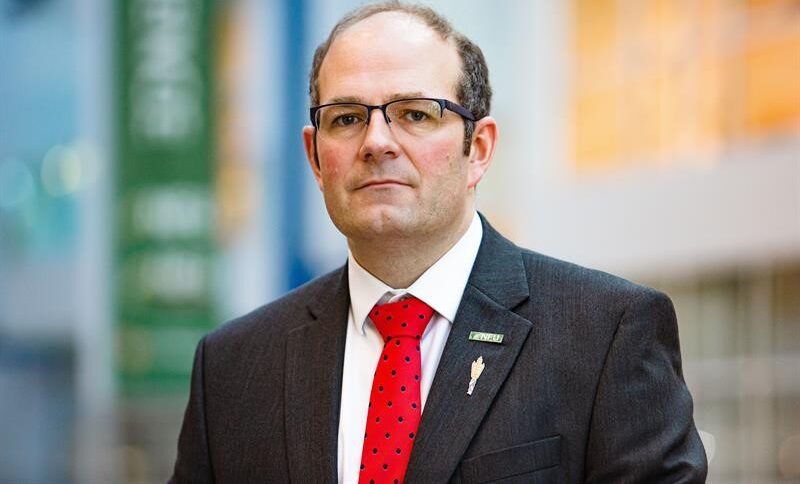NFU president Tom Bradshaw described confirmation of a huge underspend on the agriculture budget by Defra over the past three years as a ‘kick in the teeth’ for the farming industry.
Defra has revealed in the Farming and Countryside Programme (FCP) annual report a total underspend of £358 million overb that period – £130m in 2023/24, £103m in 2022/23 and £125m in 2021/22.
There have been reports that this underspend will result in the agriculture budget being reduced in future, as Defra will not be able to justify maintaining current levels, if it is not spent, prompting criticism of the current administration from farming and environmental bodies.
Daniel Zeichner, minister for food security and rural affairs, said: “Time and time again the previous Conservative Government broke their promises to farmers. They sold them out in dodgy trade deals and then failed to pay them the funds they were promised.
“The Labour government will restore confidence and stability to farmers to boost rural economic growth and strengthen our food security.”
Mr Bradshaw blamed the failure of the previous administration to deliver credible schemes to replace the Basic Payment Scheme, which has been cut back dramatically in recent years, in order to fund these new schemes.
Admission of failure
“We have repeatedly highlighted our concerns about an underspend and at long last we now have an honest admission of Defra’s failure. A £358 million underspend over three years is unacceptable and nothing short of a kick in the teeth to farmers and growers who have faced years of uncertainty and loss of income during the agricultural transition,” he said.
“Let’s be clear, this underspend hasn’t happened because the investment isn’t needed. It’s happened because the schemes to replace the Basic Payment Scheme (BPS) have not been completed in time and there are still many gaps and questions unanswered.
“We have flagged problems with the new Environmental Land Management (ELM) schemes from day one and, despite some improvements, there is a still big gap in spending as the money saved from the continued BPS reductions has sat gathering dust.
“For years, the NFU has pressed the need for the new schemes to be in place before reductions in BPS began to avoid this very issue and avoid funding being left unspent at a time when farmers needed it most.
“In opposition, the Food Security Minister said that any underspend in agricultural funding should be rolled over into future years and asked for clarity from Defra about how this would be done.
Back British Farming
Today is the annual Back British Farming Day, when the NFU asks politicians, the public, retailers, food processers and manufacturers to celebrate and champion British agriculture and its importance to the UK economy.
Speaking ahead of a breakfast reception for MPs in parliament, Mr Bradshaw urged the Government to take action to value UK food security and ensure important environmental delivery by increasing the current agriculture budget £5.6 billion on October 30.
“This budget is essential in giving Britain’s farmers and growers the confidence they desperately need to invest for the future and deliver on our joint ambitions on producing more sustainable, affordable homegrown food while creating more jobs and delivering for nature, energy security and climate-friendly farming,” he said.
“While in opposition we heard consistently from Labour that food security is national security. The Prime Minister, speaking at NFU Conference last year, pledged that Labour ‘aspires to govern for every corner of our country, and will seek a new relationship with the countryside and farming communities on this basis, a relationship based on respect and on genuine partnership’.
“Our farmers and growers are much loved and valued by the public who rank our job as one of the most important and well-respected professions⁴, second only to nursing. 91% also believe farming is important to the UK economy, with 85% believing we should increase our self-sufficiency in British food.”




